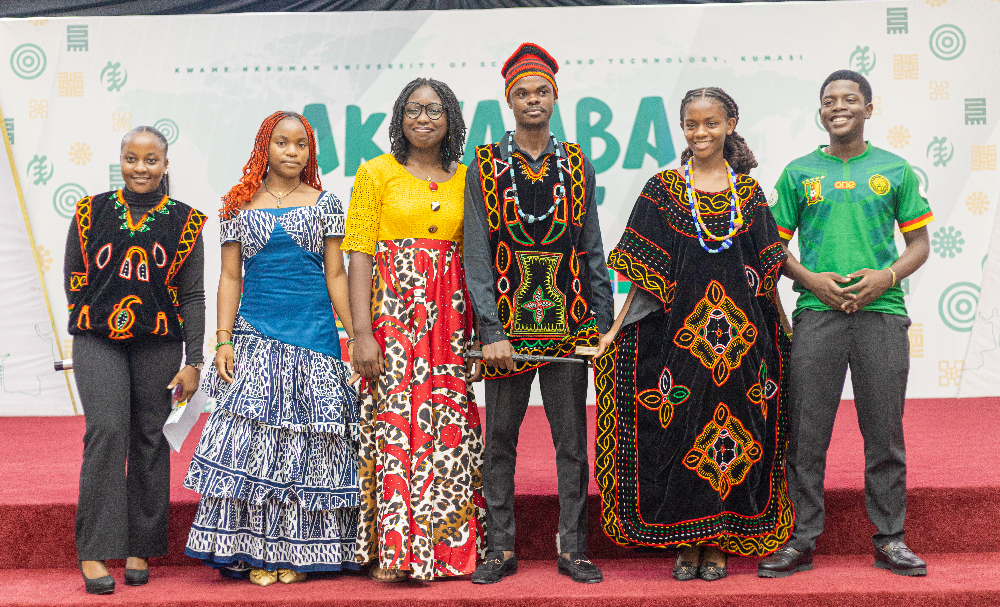The Akwaaba Night at the Kwame Nkrumah University of Science and Technology (KNUST) is always a vibrant celebration of cultural diversity, but this year’s edition held an extra special highlight: the Cameroon Fashion Parade.
Draped in regal fabrics and adorned with intricate patterns, the models strutting across the stage transported the audience into the heart of Cameroon’s cultural heritage.
Each piece carried deep historical and traditional significance, offering a storytelling experience that extended beyond fashion into identity and pride.
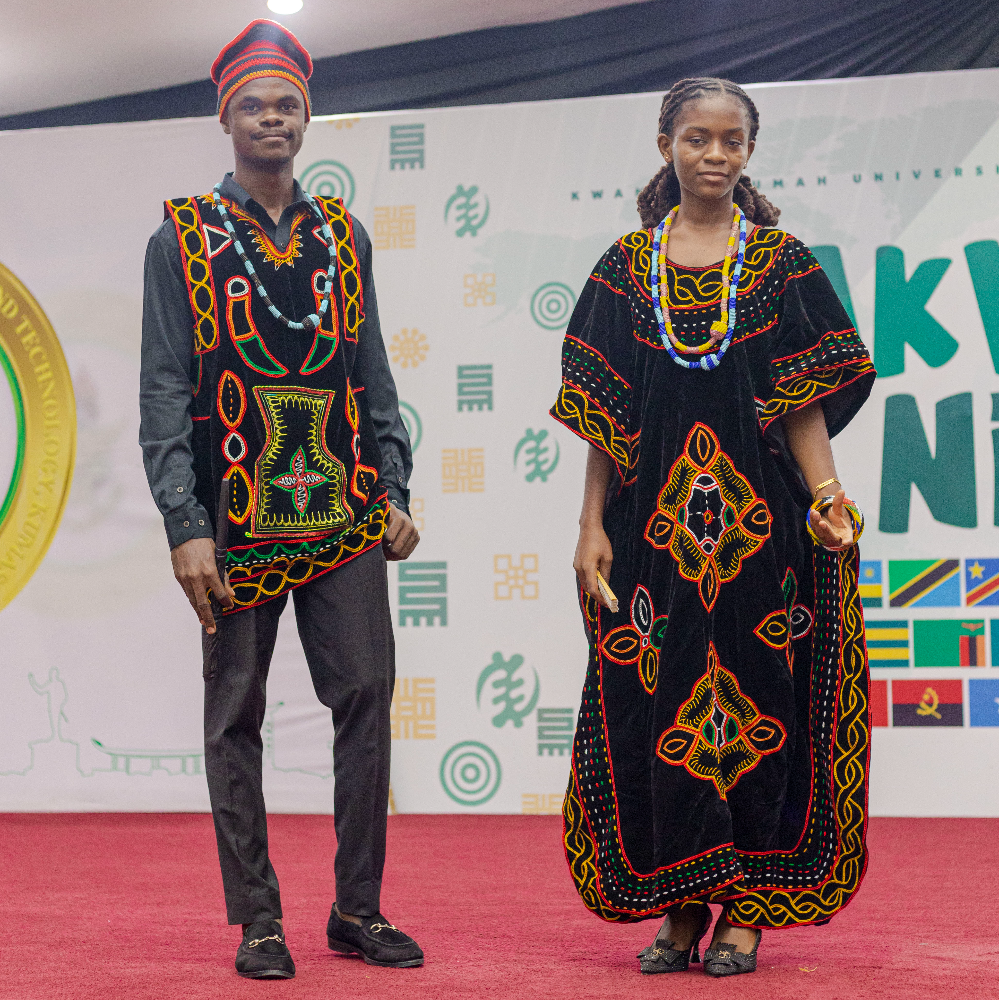
One of the standout pieces was the Toghu/Atoghu, a striking sleeveless velvet vest from Bamenda in the North West Region of Cameroon.
Traditionally reserved for royalty and prominent figures, the Atoghu was embroidered with intricate patterns that symbolize the history, traditions, and culture of the Bamenda people.
Completing the regal look, models wore woven woolen caps, ivory bangles, and glass-beaded necklaces, emphasizing the prestige associated with this attire.
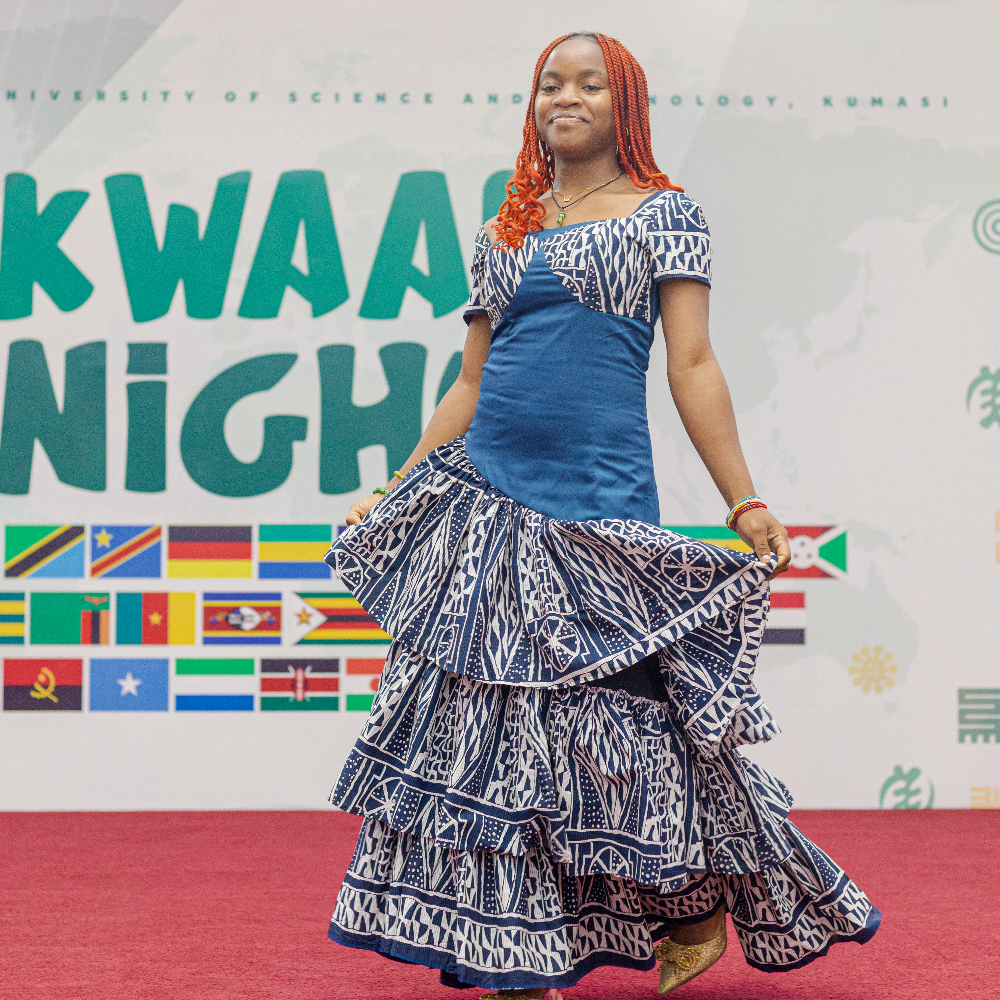
Another highlight of the night was the Ndop, a cloth closely associated with the Bamileke people.
Symbolizing wealth and power, the Ndop fabric’s complex designs bridge the past and present, showcasing the mastery of African textile craftsmanship.
The audience marveled at the elegance and historical significance of the fabric, which remains a staple in Cameroonian royal displays.
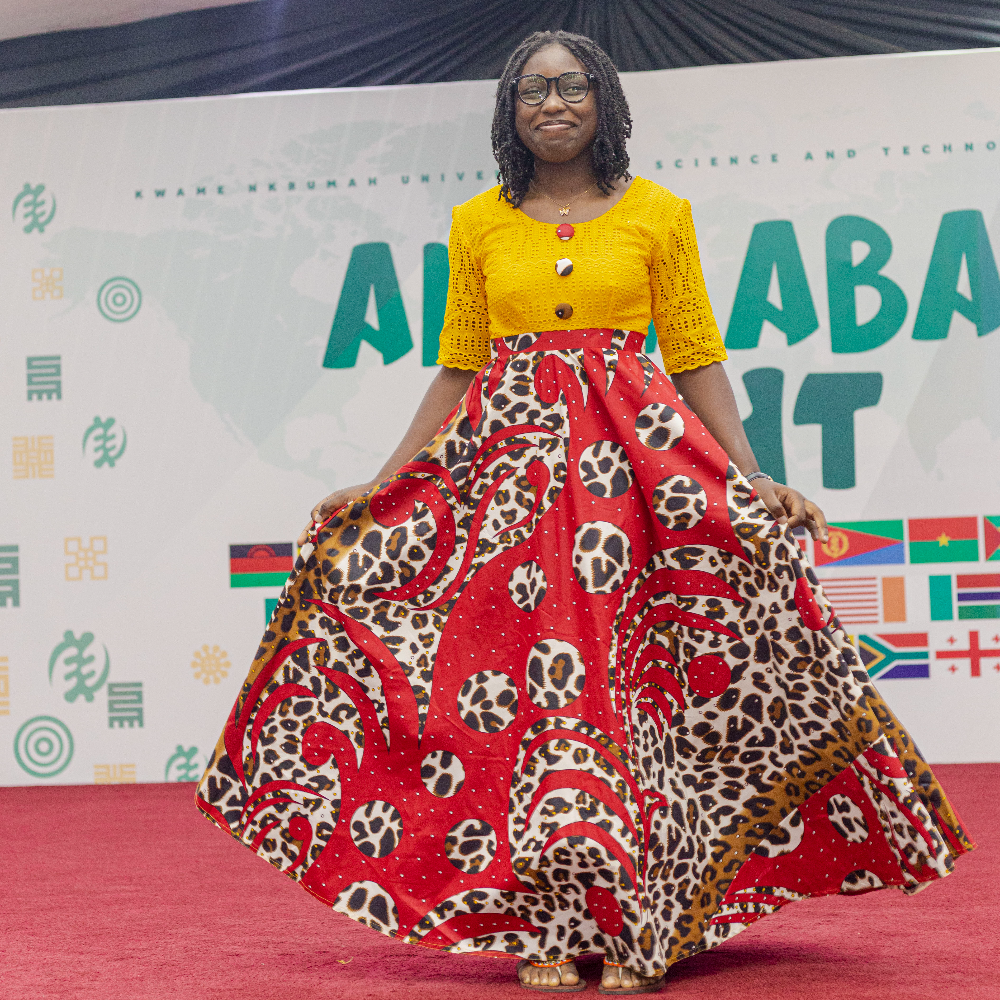
The Kaba Ngondo, a flowing maxi yoke dress, introduced the audience to the cultural splendor of the Duala people.
Its vibrant colors, inspired by Cameroon’s lush rainforests, rivers, and florals, painted a breathtaking picture of the country’s natural beauty. The attire, often worn during the annual Ngondo Festival, was a perfect representation of how fashion intertwines with celebrations in Cameroon.
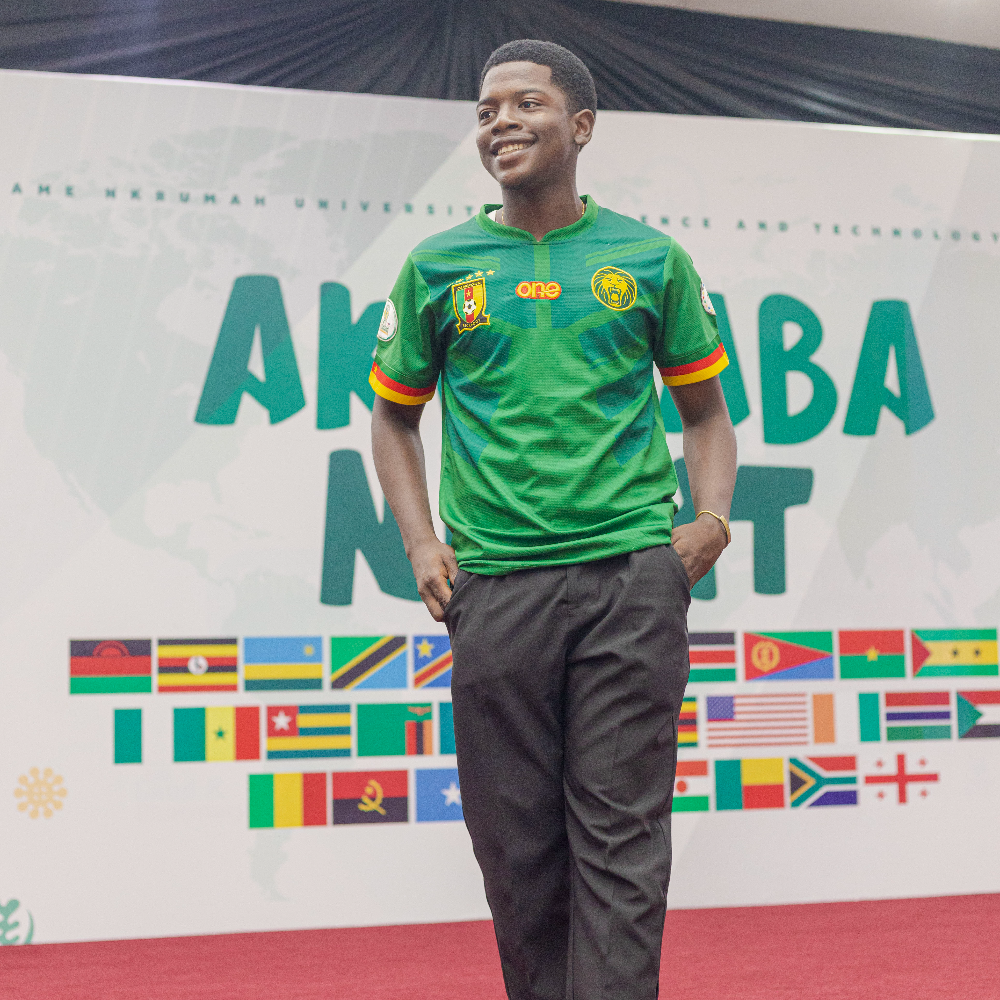
Not to be left out, the iconic 237 Jersey: the official jersey of the Cameroonian national football team made a bold statement on the stage.
With its signature green, red, and yellow colors representing hope, sacrifice, and prosperity, the jersey reminded the audience of Cameroon’s dominance in African football.
The moment was made even more electric with references to the country’s five Africa Cup of Nations (AFCON) titles and its legendary footballer, Samuel Eto’o.
| Story by Abigail Ofori (URO) | Photos by Michael Gizzo Kwawu (URO) and Emmanuel Offei (URO) |








